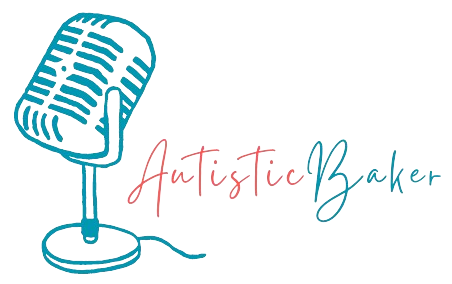Understanding the Emotional Burden of Money
Money is one of the most emotionally charged topics in life. It carries weight — not just in the bank, but in the heart and mind. For many people, financial struggles aren’t just about numbers or budgeting; they’re tangled up with feelings of shame and guilt. Shame whispers that you’re bad with money, unworthy, or incapable, while guilt tells you that you made mistakes but can change. Learning to distinguish between the two is the first step toward financial healing. For some, taking steps such as exploring personal loan debt relief can provide the breathing room needed to focus on rebuilding both finances and self-worth. But overcoming the emotional burden requires more than financial strategies — it takes emotional courage and compassion.
Shame: The Silent Barrier to Financial Growth
Shame is powerful because it isolates. It convinces you that your financial situation is a reflection of your value as a person. This mindset often prevents people from asking for help, seeking education, or even opening their bills. Instead of seeing debt or poor money habits as challenges that can be improved, shame frames them as personal failures. This emotional weight can create a cycle of avoidance and anxiety that keeps financial problems hidden and unresolved.
Shame thrives in secrecy. The less you talk about your money struggles, the more control shame has over your mindset. Breaking this silence — whether by talking to a trusted friend, a financial advisor, or a therapist — begins to dissolve its hold. Research from the American Psychological Association shows that money stress is one of the leading sources of emotional strain in adults, yet discussing it openly reduces its power and allows space for solutions.
Guilt: A Healthier Emotional Compass
Unlike shame, guilt can be productive. It doesn’t condemn who you are; it calls attention to what you’ve done and what can be changed. Feeling guilty about overspending or not saving enough can serve as motivation to adopt better habits — if approached with self-compassion. The key difference is that guilt invites action, while shame invites paralysis. When guilt says, “I can do better,” shame says, “I am a failure.”
To use guilt constructively, focus on accountability rather than punishment. If you made financial mistakes, acknowledge them without self-blame. Then, identify one small, concrete action that moves you forward — setting a budget, paying down one bill, or learning more about financial literacy. Small wins rebuild confidence, which gradually transforms guilt into growth.
Reframing Negative Money Beliefs
Our financial behaviors often stem from beliefs we’ve carried for years — messages we absorbed from family, culture, or past experiences. If you grew up hearing “money doesn’t grow on trees” or “people like us never get ahead,” those subconscious messages may still influence your spending and saving patterns. Reframing those beliefs is essential to break free from self-defeating money habits.
Start by questioning the truth behind those beliefs. Are they facts or fears? Replace limiting thoughts with empowering ones: “I can learn to manage money well,” or “I deserve financial stability.” Developing this mindset shift isn’t instant, but it lays the groundwork for long-term financial transformation. The Consumer Financial Protection Bureau offers resources to help people at any age build healthier money habits and attitudes, making financial learning more approachable and less intimidating.
Practicing Self-Compassion in Financial Healing
It’s easy to be harsh on yourself when money mistakes pile up. But self-criticism rarely leads to change — it often fuels avoidance and procrastination. Practicing self-compassion means treating yourself with the same understanding you’d offer a friend in a similar situation. It allows you to acknowledge your financial missteps without letting them define you.
When you replace self-blame with curiosity, you start learning from your financial experiences instead of hiding from them. Ask yourself: What led to this decision? What emotion was I trying to manage? This introspection shifts your focus from judgment to understanding, turning financial challenges into lessons rather than failures.
Setting Realistic Financial Goals
Perfectionism often partners with shame, creating unrealistic expectations about financial progress. People aim to pay off all debt, save a fortune, and completely change their habits — all at once. This kind of all-or-nothing approach sets you up for disappointment and reinforces feelings of inadequacy when perfection isn’t achieved.
Instead, set realistic, measurable goals that fit your current circumstances. Start with small, consistent steps — saving $50 a month, tracking expenses weekly, or paying off one credit card at a time. Celebrate progress, not perfection. The sense of achievement from meeting attainable goals builds momentum and confidence, which gradually reduces guilt and replaces shame with pride.
Talking About Money Without Fear
One of the most powerful ways to overcome money shame is to start talking about it. Whether in personal relationships or communities, open discussions about finances normalize the fact that everyone faces challenges. It also helps dismantle unrealistic comparisons often fueled by social media, where people showcase luxury but rarely vulnerability.
Having honest money conversations also fosters accountability and support. It’s easier to stay motivated and informed when you share your financial journey with others who understand. Whether through support groups, online forums, or a trusted financial advisor, community connection replaces isolation with empowerment.
When Professional Help Makes a Difference
Sometimes, money shame and guilt run deeper than simple budgeting advice can fix. Working with a financial therapist, counselor, or advisor can help uncover the emotional roots of your financial behaviors. Professionals trained in financial psychology can provide tools to address both the practical and emotional sides of money management. Seeking help isn’t a sign of failure; it’s a step toward freedom.
Final Thoughts
Shame and guilt may both arise from financial struggles, but they don’t have to dictate your future. Shame keeps you stuck in the past, while guilt — when reframed — can guide you toward meaningful change. Overcoming the emotional weight tied to money is a process of awareness, compassion, and consistent effort. By talking openly about finances, reshaping limiting beliefs, and focusing on progress over perfection, you begin to build not only financial stability but emotional resilience. The moment you stop seeing money mistakes as moral flaws and start viewing them as opportunities for learning, you take back your power — and with it, your peace of mind.




